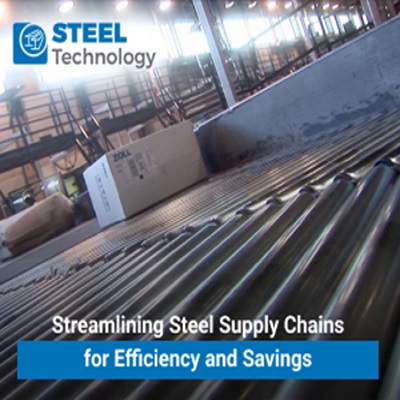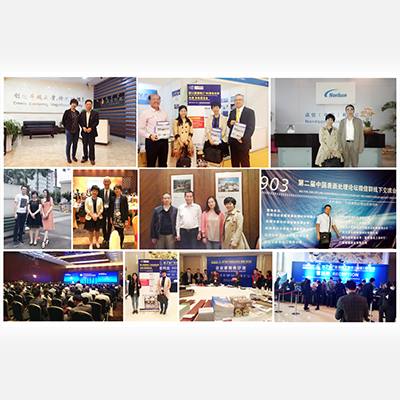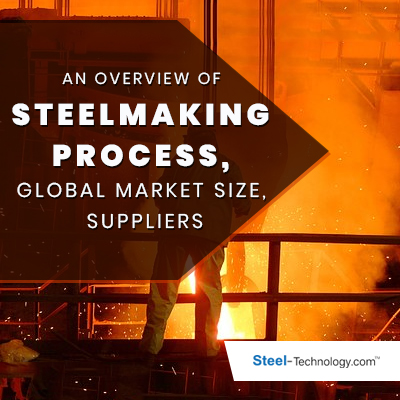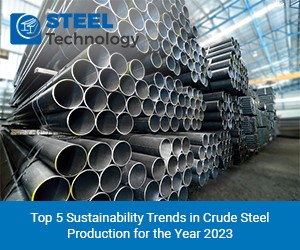Streamlining Steel Supply Chains for Efficiency and Savings

Introduction:
In the realm of modern infrastructure, steel serves as the cornerstone material, underpinning everything from towering skyscrapers to expansive bridges. However, the intricacies of the steel supply chain often result in inflated expenses and operational inefficiencies. In an era defined by fierce market competition and mounting environmental concerns, the need to streamline the steel supply chain has become increasingly critical. This article delves into the multifaceted strategies and transformative technologies that can effectively streamline the steel supply chain, subsequently reducing costs and bolstering overall efficiency.
The Steel Supply Chain Unveiled:
The journey of steel within the supply chain begins with the extraction of fundamental raw materials like iron ore and coal, followed by intricate refining processes, extensive manufacturing procedures, and the final distribution to end-users. Each phase of this intricate process carries significant weight, directly impacting the ultimate cost and quality of the steel product that reaches the market.
Challenges Plaguing the Steel Supply Chain:
Numerous challenges besiege the steel supply chain, contributing to increased costs and diminished operational efficacy. Fluctuating raw material prices, bottlenecks in transportation logistics, complexities in inventory management, and the lack of real-time visibility into the supply chain are some of the primary hurdles. These obstacles not only inflate costs but also impede the seamless fulfillment of customer demands, ultimately impacting customer satisfaction and retention.
Strategies for Achieving Optimal Efficiency:
To effectively confront the challenges ingrained within the steel supply chain, industry leaders and stakeholders are increasingly adopting a range of comprehensive optimization strategies. These strategies encompass the deployment of advanced analytics to facilitate accurate demand forecasting, optimize inventory levels, and pinpoint potential bottlenecks within the supply chain. Moreover, the integration of lean manufacturing principles serves to eliminate wastage, reduce lead times, and enhance overall operational efficiency. Establishing robust partnerships and fostering collaboration among suppliers, manufacturers, and distributors is crucial for facilitating smooth communication and the seamless flow of materials and information. The integration of automation technologies, including robotics and AI-powered systems, contributes to increased production efficiency, minimizes errors, and optimizes resource utilization. Additionally, the implementation of just-in-time (JIT) manufacturing principles ensures that materials are delivered and products are manufactured precisely when needed, consequently reducing excess inventory and storage costs.
Technology's Crucial Role in Optimizing the Supply Chain:
The integration of advanced technologies has sparked a revolutionary transformation within the steel supply chain, empowering companies to achieve unparalleled efficiency and cost-effectiveness. Blockchain technology has enabled improved transparency and traceability, ensuring secure transactions among stakeholders. Leveraging the Internet of Things (IoT) allows real-time tracking of shipments, streamlined inventory management, and predictive maintenance, minimizing downtimes and enhancing overall operations. Moreover, cloud computing facilitates seamless data storage and analysis, enabling informed decision-making and agile responses to market changes.
The Imperative of Sustainability in the Steel Supply Chain:
In addition to the paramount goals of cost reduction and operational efficiency, optimizing the steel supply chain plays a pivotal role in fostering environmental sustainability. By implementing sustainable practices such as minimizing waste generation, reducing energy consumption, and integrating eco-friendly manufacturing processes, companies can significantly curtail their carbon footprint, contributing to a greener and more sustainable future. Embracing sustainable procurement practices by sourcing materials from environmentally responsible suppliers further strengthens the commitment to sustainability, fostering a more holistic approach to environmental stewardship within the steel industry.
Technology's Transformative Influence on the Steel Supply Chain:
The assimilation of advanced technologies has heralded an era of heightened efficiency and transparency in the steel supply chain. Through the deployment of intricate data analytics and artificial intelligence (AI), businesses can glean holistic insights into market trends, customer inclinations, and production patterns, facilitating informed decision-making and swift adaptation to market shifts. Moreover, the integration of robotics and automation in manufacturing plants has not only elevated production efficiency but also guaranteed enhanced precision and quality control, consequently minimizing defects and the need for rework.
The incorporation of advanced tracking systems has enabled real-time monitoring of shipments, ensuring timely deliveries and mitigating potential disruptions in the supply chain. These technological advancements have collectively contributed to the optimization of the steel supply chain, fostering a more agile, responsive, and resilient industry prepared to meet the demands of a rapidly evolving global market.
Embracing Sustainability: A Catalyst for Growth and Responsibility:
In an era characterized by mounting environmental concerns, the steel industry is increasingly recognizing the imperative of sustainable practices as a key driver of long-term growth and corporate responsibility. By adopting eco-friendly manufacturing processes, optimizing energy consumption, and reducing greenhouse gas emissions, steel manufacturers can significantly minimize their environmental footprint, thereby aligning their operations with global sustainability goals. The adoption of circular economy principles, wherein products and materials are reused and recycled to minimize waste generation, has emerged as a sustainable solution that not only conserves resources but also reduces the overall environmental impact of the steel supply chain. Moreover, the implementation of sustainable sourcing practices, such as procuring raw materials from ethically responsible suppliers, reinforces the commitment to sustainability and fosters a more resilient and socially responsible supply chain ecosystem.
The Broader Impact: Fostering Economic Resilience and Global Competitiveness:
The optimization of the steel supply chain transcends the boundaries of individual companies, exerting a profound influence on the broader industry landscape and the global economy. By streamlining processes, reducing operational costs, and enhancing overall productivity, optimized supply chains contribute to a more efficient allocation of resources, ultimately fostering economic growth and competitiveness within the steel industry. The increased efficiency and cost-effectiveness of the supply chain directly translate into competitive pricing for steel products, making them more accessible and affordable for a diverse range of consumers, including businesses and end-users. Furthermore, the adoption of sustainable practices and the integration of environmentally responsible strategies position the steel industry as a frontrunner in the global transition toward a more sustainable and environmentally conscious manufacturing sector. By setting a precedent for responsible business practices and fostering innovation in sustainability, the steel industry not only secures its own future but also contributes significantly to the collective goal of building a more sustainable and prosperous global economy.
Conclusion:
In the pursuit of enhancing efficiency and reducing costs, the optimization of the steel supply chain emerges as a pivotal catalyst for transformative change within the steel industry. By leveraging advanced technologies, fostering sustainable practices, and embracing a collaborative approach, stakeholders within the steel industry can drive significant improvements in operational efficiency, cost-effectiveness, and environmental sustainability. Moreover, the ripple effects of an optimized supply chain extend beyond individual companies, playing a central role in fostering economic resilience, driving global competitiveness, and shaping a more sustainable and prosperous future for the broader industry and the global economy at large. By prioritizing continuous innovation and sustainability, the steel industry is poised to navigate the challenges of the future with resilience, foresight, and a steadfast commitment to responsible growth and development.









